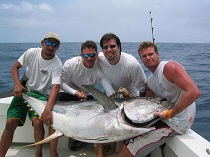Costa Rica Real Estate Investors Market Update - Finance Minister says Costa Rica is in a "very strong and very favorable" financial position.
Scott Oliver - 12th October 2008
I have received numerous emails from people this week along the lines of:
"With the incredible financial meltdown in many countries and with real estate drastically losing its value all over the world, why not address this issue in one of your next newsletters. We, up here, need some "objective" and "real" analysis of what's happening in Costa Rica. It would be hard to believe that all this is not affecting Costa Rica."
Since discussing the state of the real estate market a few weeks ago in my article entitled 'Prices For Quality Costa Rica Real Estate Remain Stable - In contrast to sensational and unsubstantiated claims made by some' with feedback from numerous real estate experts in various parts of the country, little has changed here.
The number of actual real estate sales have certainly dropped in the past year - especially with regards to buyers from the USA - but for the most part, prices in Costa Rica remain stable, we have not seen any significant 'across-the-board' declines.
They say that misery loves company and I'm sorry we are not going to share any miserable stories with you about Costa Rica because the more you look, the better you are going to feel about investing in Costa Rica:
Costa Rica's Finance Minister - Guillermo Zuniga
- In looking at Costa Rica's balance sheet, you will quickly see that according to the country's Finance Minister Guillermo Zuniga, Costa Rica is in a "very strong and very favorable" financial position.
- Costa Rica is enjoying a budget surplus.
- Imports and exports are only declining slightly.
- Costa Rica is less reliant on the USA than we have ever been.
- Not only is Costa Rica in the best financial condition its been for over a decade...
- Costa Rica's banks are also in very good shape.
- On the 8th October 2008 the President of the Banco Central de Costa Rica Francisco de Paula Gutiérrez stated that he: "does not see any economical indications of the world financing crisis affecting Costa Rica."
- As an example to confirm that, you'll see that as of 10th October 2008 while the Dow Jones Industrial Average is down about 40% over the last year, the Costa Rica Stock Exchange is up 11.06%
Looking at how mortgage interest rates have risen in Costa Rica it would appear that - unlike many countries - the Costa Rica market has been uncannily accurate in predicting a period of much higher risk.
According to the Banco Central de Costa Rica (BCCR) the weighted average of all Costa Rica mortgage interest rates for the state banks in colones was at its lowest at 9.64% in April 2008. On the 7th October 2008 it was 14.65%. For the private banks, it was at its lowest in April at 8.09% and on the 7th October 2008, was at 13.22%. Mortgages in US dollars at the present time range from about 8.57% with ScotiaBank offering 11% mortgages (for the first three years).
As anyone will tell you who has applied for a mortgage in Costa Rica - myself included - the banks in Costa Rica are very much more conservative than the banks have been in the USA and they were never in the business of giving out ridiculous mortgages to low income people who could not afford the payments.
This is reflected in a recent statement (11 October 2008) from Maria Isabel Cortes, the President of the Costa Rica Banking Association (La Asociación Bancaria Costarricense) when she said that: "The increase in interest rates is still is not affecting the punctuality of mortgage payments from the Ticos."
Costa Rica Stock Exchange Stocks
Banco de Costa Rica and Bancrédito both confirmed the healthiness of their mortgage portfolios at the present time.
According to the US Mortgage Bankers Association "Among mortgages on one- to four-family homes,9.16% were a month or more overdue or were in foreclosure in the second quarter."
Meanwhile in Costa Rica Arnoldo Trejos Dobles, the Assistant Director of Bancrédito, stated that from September 2007 - September 2008 the number of people 90 days late on their mortgages has improved from 0.97% to a mere 0.74%. So compared to Costa Rica, on a percentage basis the US has over twelve times more people late with their mortgages!
Costa Rica banks were also not in the business of investing in their monies in the various meltdown mortgage funds and SIV's that did invest in these sub-prime mortgage products and other toxic derivatives or as Warren Buffet called them: "... financial weapons of mass destruction".
Having worked as a professional investment advisor in Costa Rica since 1999 I can also confirm that individual investors in Costa Rica are not particularly sophisticated, and they too are very conservative with their investments.
One reason the US trade deficit is so large is the practice of US corporations offshoring their production of goods and services for US markets to countries like Costa Rica. When these products are brought into the US to be sold, they count as imports. Thanks to Intel and a few other high-tech companies Costa Rica is among the world's top 4 high-tech exporters and is one of the most competitive destinations in Latin America for service operations.
This is not good news for American jobs but this is good news for Costa Rica. It gives investors confidence when they consider investing in Costa Rica and it's even more apparent when you examine the kinds of companies that continue to move to, and expand in Costa Rica.
The most recent news being Amazon.com's new operations in Heredia where they will be hiring 700 people, Citi Business Services hiring an additional 200 people for their Global Operations Centre in Santa Ana and Western Union hiring another 550 people (also in Santa Ana).
Dow Jones Industrial Average Down 40% - 10th October 2007 - 10th October 2008
If you want to take a look at the financial markets in Costa Rica, the Costa Rica Stock Exchange is the largest in Central American and is comprised of 30 different company's shares, equivalent to the Dow Jones Industrial Average except that just this last week the Dow Jones Industrial Average declined by 18%, capping the worst week in its 112-year history with Friday being its most volatile day ever and for the most recent year - 10th October 2007 - 10th October 2008, the Dow Jones Industrial Average is down about 40% and the Costa Rica Stock Market index is up 11.06% during that same period.
Seeing this it is crystal clear that there is zero correlation - so far - between Costa Rica's stock market and other stock markets. The UK, European, Russian and Asian markets are also dying on the vine and unfortunately this is just the beginning folks...
Costa Rica Stock Exchange Up 11.06% - 10th October 2007 - 10th October 2008
"California may need a $7 billion emergency loan from the federal government to pay for "teachers' salaries, nursing homes, law enforcement and every other state-funded service" this month, Gov. Arnold Schwarzenegger warns."
Unless the national economic crisis subsides and California can secure private short-term loans "the state's cash reserves would be exhausted near the end of October." And "Payments for teachers' salaries, nursing homes, law enforcement and every other state-funded service would stop or be significantly delayed..." "And California's 5,000 cities, counties, school districts and special districts would face the same fate."
This is happening at an inconvenient time when infrastructure is crumbling and more investment is urgently required. "In 2005 the American Society of Civil Engineers estimated that $1.6 trillion was needed over five years to bring just the existing infrastructure into good repair. This does not account for future needs."
"If America does not act, says Robert Yaro of the Regional Plan Association (RPA), a body that plans for the New York-New Jersey-Connecticut region, it will have the infrastructure of a third-world country within a few decades."
Some experts believe that the true unemployment number in the USA is 14%+
How many other states in the USA are in similar, very dire straits? "One prime example of this problem is Jefferson County, Ala., where the state's largest city, Birmingham, is located. The county is now saddled with $3.2 billion in debt from sewer upgrades and finds itself on the brink of becoming the largest municipal bankruptcy in U.S. history."
The States of New Mexico, Maine, and Massachusetts also have serious liquidity problems.
How will rapidly declining real estate values in the USA affect property tax collections? If the municipalities are collecting far less money, how will that affect them?
Many people feel that times are tough now in the USA, unfortunately the tough times in the USA are just beginning...
What about the decline in the amount of construction in the USA? "For every area job lost in construction, real estate or banking, three other positions will disappear, according to the U.S. Department of Commerce."
"September's job report was the worst in five years, and over the last year, 1.1 million jobs have been eliminated. Since September 2007, construction in particular has lost 760,000 jobs, dropping from 9.5 million to 8.74 million employed workers."
As consumers spend less, how will declining sales tax revenues in the US affect the bottom line?
How will this financial crisis affect employment? Are companies hiring or firing people? Some economic experts believe the true unemployment numbers in the US is already over 14%.
How is this catastrophic decline in the global financial markets affecting already underfunded pension programs? Maybe your pension program? Why is nobody talking about that?
According to Rosa Brooks: "It's been a quick slide from economic superpower to economic basket case."
During my decade working on Wall Street as a registered investment advisor in the 80s we used to talk about a "flight to quality" when investors were moving their capital away from riskier investments to the safest possible investment vehicles, and with the stability being shown by Costa Rica's financial and real estate markets in comparison to what has been going on elsewhere (anddidn't that bailout work well?), it's a "no-brainer" to conclude that Costa Rica remains a great place to invest.
Written by Scott Oliver, author of How To Buy Costa Rica Real Estate Without Losing Your Camisa and Costa Rica's Guide To Making Money Offshore.
















